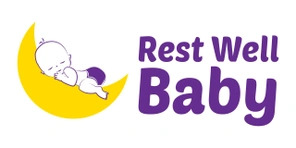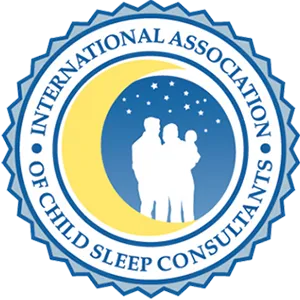Blog

Is my child getting enough sleep?
How to Know if Your Little One is Getting Enough Sleep
Wondering if your little one is getting enough sleep? You're not alone. Unlike tracking food intake, sleep can feel like a mysterious realm. While recommended sleep guidelines exist, every child is unique. So, how can you decipher if your little one is truly getting the restorative rest they need to thrive?
Forget obsessively watching the clock. Instead, become a keen observer of your child's behavior and overall well-being. Here are key indicators that your baby or toddler is likely getting sufficient sleep:
1. Happy Mornings and Throughout the Day:
A well-rested child typically wakes up relatively happy and content. They might babble, coo, or even smile upon waking, rather than immediately crying or fussing. Throughout the day, observe their mood. Are they generally playful, engaged, and adaptable? While occasional grumpiness is normal, consistent irritability, clinginess, or meltdowns could signal a sleep deficit.
2. Optimal Engagement and Focus:
Sleep is crucial for cognitive development. A well-rested baby or toddler will be more alert and engaged during playtime and learning activities. They'll show interest in their surroundings, maintain better focus during interactions, and be more receptive to new information. Difficulty concentrating, easily becoming distracted, or a lack of interest in their usual activities might point to insufficient sleep.
3. Healthy Appetite and Feeding Patterns:
Adequate sleep plays a role in regulating hormones that control appetite. While overtiredness can sometimes lead to increased fussiness around feeding, chronically sleep-deprived children may exhibit inconsistent eating patterns, struggle to focus during meals, or even show a decreased interest in food. Look for consistent and healthy appetite cues throughout the day.
4. Age-Appropriate Napping (for babies and younger toddlers):
While nap transitions are a normal part of development, consistent skipping of naps or significantly shortened naps, coupled with daytime fussiness, often indicates a need for more consolidated daytime sleep. Observe your child's cues for tiredness – eye rubbing, yawning, fussiness – and offer nap opportunities accordingly. A well-rested child will usually settle for naps relatively easily.
5. Resilience and Adaptability:
Life with little ones is unpredictable. A well-rested child tends to handle minor disruptions to their routine with more resilience. They might bounce back from a slightly later bedtime or a missed nap without significant behavioral fallout. Conversely, an overtired child may become easily overwhelmed by minor changes and exhibit more intense reactions.
6. Healthy Growth and Development:
While many factors contribute to growth, sleep plays a vital role in the release of growth hormones. While you can't directly link sleep to growth spurts on a daily basis, consistent insufficient sleep over time can potentially impact overall development. Regular check-ups with your pediatrician will monitor your child's growth trajectory.
7. Falling Asleep Relatively Easily at Bedtime:
A child who has accumulated sufficient sleep during the day and is on an appropriate sleep schedule will typically settle down for bedtime within a reasonable timeframe (around 15-20 minutes). Prolonged bedtime battles, excessive crying, or significant resistance to sleep can be a sign of being overtired or undertired.
Important Considerations:
Developmental Leaps: During periods of rapid development, sleep patterns can temporarily fluctuate. Increased fussiness or changes in sleep needs might occur.
Illness: Sickness can significantly impact sleep. Once your child recovers, their sleep patterns usually return to normal.
Individual Differences: Remember that the "ideal" amount of sleep varies between children. Pay attention to your child's unique cues and temperament. Some babies and toddlers naturally require slightly more or less sleep than their peers.
Temperament: A child's inherent temperament can influence their sleep patterns and how they respond to sleep training or routine changes. High-needs or more sensitive children might require a gentler approach and more time to adjust.
Age-Appropriate Expectations: Ensure your expectations for your child's sleep align with their developmental stage. Newborns have very different sleep needs and patterns than toddlers.
Instead of solely focusing on the numbers, become a detective of your child's daily rhythms and behaviors. By observing these signs, you'll gain a much clearer understanding of whether your little one is truly getting the restorative sleep they need to thrive, learn, and grow into happy, well-adjusted individuals. If you have persistent concerns about your child's sleep please feel free to reach out to book your 30 minute Sweet Dreams Starter call to learn how I can help.
Yours in sleep,
Tracie / Rest Well Baby
www.restwellbaby.com
Tracie Kesatie is a Certified Gentle Sleep Coach dedicated to helping families with little ones 0-10 years of age achieve a restful night's sleep.
Disclaimer: This article provides general information and is not intended as medical advice. Always consult with your pediatrician for any concerns about your child's health.
Blog





